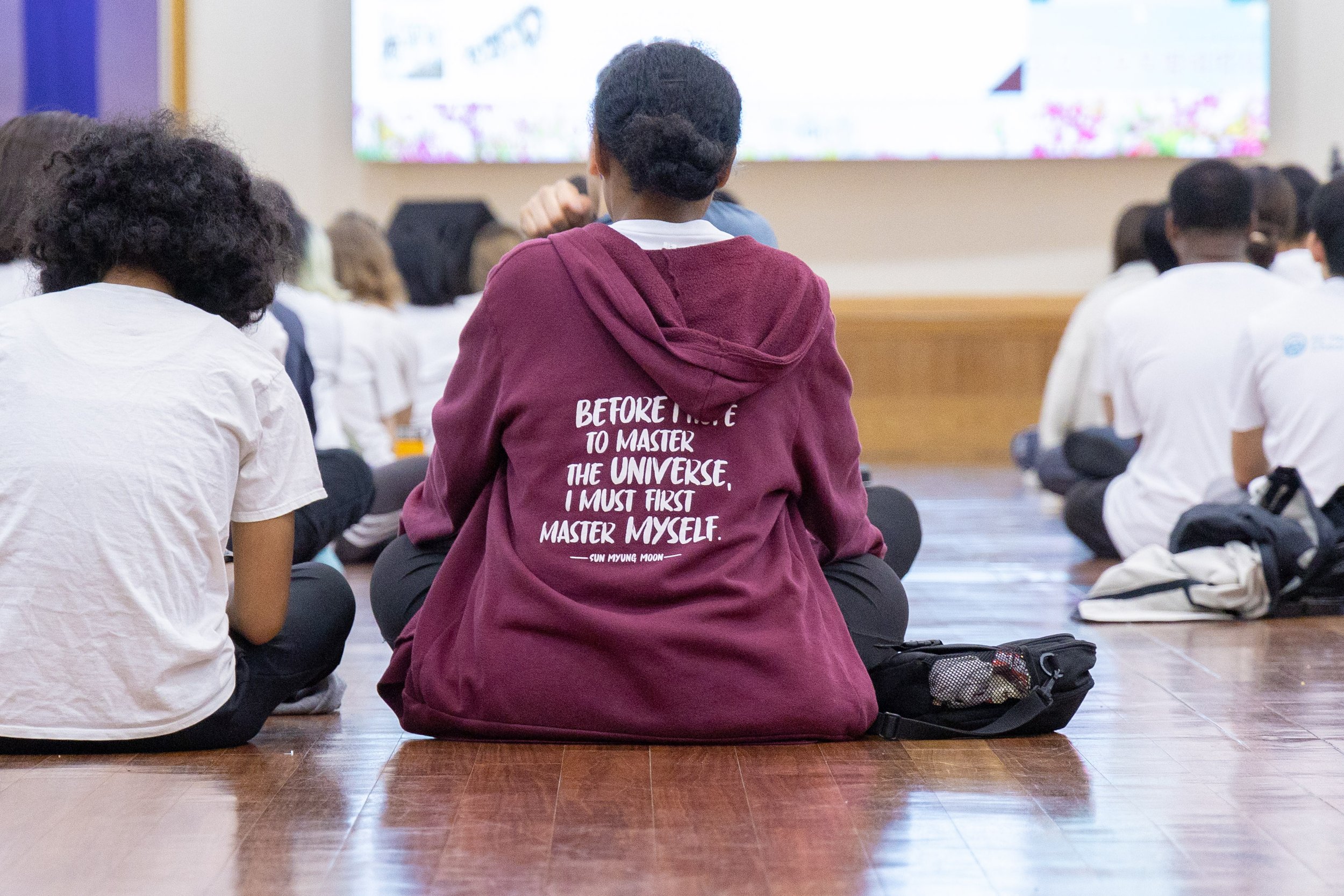Our Portion of Responsibility
By Andrew Love
Perhaps one of the easiest concepts to understand at the beginning of the Divine Principle might be one of the hardest to enact in day-to-day life.
This concept requires that we walk the fine line between disparate aspects of ourselves - between logic and faith, interpretation and fact, sensical and improbable.
That is the burden and the joy of grappling with the concept of “Our Portion of Responsibility”.
“By fulfilling their given portion of responsibility, with which even God does not interfere, human beings are meant to inherit the creative nature of God and participate in God’s great work of creation.””
What is truly beautiful and liberating about this revelation is that it appeases our rational minds as well as our spiritual palette. The entire debate about whether we have free will as humans or not is also resolved within this brief section of the Divine Principle.
To know that we have responsibility gives humanity a sense of ownership in our personal and collective destinies. The state of our present circumstances on the planet is the result of our decisions…clearly. But are we doomed to repeat our self-destructive ways as a species? No, not at all.
Conversely, knowing that the weight of the cosmos doesn’t rest on our limited mortal abilities is incredibly reassuring. Although we are responsible for making the mess, we can find cosmic assistance in the clean-up process.
Albert Einstein famously said, “You cannot solve a problem with the same mind that created it.” If you can understand this statement through the lens of the Portion of Responsibility concept, then it takes on an entirely new dimension.
“You cannot solve a problem with the same mind that created it.”
When we take advantage of the fact that our cosmic creator, our Heavenly Parent, wants to collaborate with us in creating solutions, then we are never limited in any way shape, or form.
Practically, this means that any problems we experience on a personal or societal level have solutions, but we can’t access them by our thoughts alone.
It is only when we reach beyond the personal, selfish “survival thoughts” and get into the frequency of the divine solutions that we will tap into the limitless trove of wisdom that constantly surrounds us.
And then there’s the matter of making your ideas substance, for a plan without action is merely theory. A tricky aspect of the Portion of Responsibility concept is understanding how much action to take.
There is a fine line between participating too much vs not enough. You may overwork yourself and trip up the providence on the one side, or sit around waiting for something to happen and miss your chance on the other.
If you’re not careful, you could be stepping on God’s toes and getting into His business. How many people throughout the ages were convicted by divine purpose, only to realize they were actually appeasing their own ego?
Whereas, how many people have you observed who use their faith in God to reassure themselves that someone other than themselves will make this world or even their own lives better?
It would seem that achieving a balanced relationship with “Our Portion of Responsibility” lies in us utilizing two key elements:
1. Prayer
2. Community
With prayer, it will never be our front lobe that connects us to the divine. We need to move beyond what we know in order to find solutions to problems. That is the purpose of prayer, to understand our creator, the world around, and even ourselves more deeply. So, naturally understanding if we are doing too little or too much will require us to connect with the highest thoughts we can access.
Community is a vital component as well because it is there where ideas are worked out, where faith and substance collide. Perhaps we think our portion of responsibility is somewhat limited, but then we are asked to stretch ourselves beyond our comfort zone out of a communal need.
Such situations will allow for growth and we will see just how small we were thinking. In other situations we might be running ourselves into the ground, overexerting ourselves, and it will only become apparent when someone lets us know that we aren’t helping the way we thought.
There are many ways that this can play out, but ultimately the truth of your portion will be unveiled only through conversing with God and collaborating with other people.


